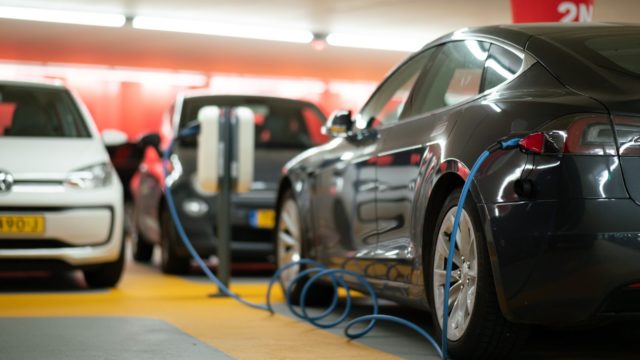
The electric vehicle market is one of the fastest-growing global industries as more consumers look to play their part in reducing their carbon footprint.
Increasing demand for metals such as nickel is causing huge deficits in supply and the growth of electric vehicles is a major player in that demand. As suppliers, we are now paying prices higher than at any time since the financial crisis in 2008 for Stainless Steel, in particular, it is the use of nickel in EV batteries that is driving this.
With demand significantly outweighing supply, there appears to be no sign of slowing down either.
But in addition, based on industry insight, we believe there are other factors at play.
Sustainability is pushing us forward
As a business, we are buying into sustainability as a solution, not as an idea and I believe others will do the same.
Within steel and aluminium, we are now at a point where so much money has been invested by governments and businesses that sustainability is no longer an option, it’s the way the industry is moving.
With investment in new technologies, businesses in the sector are now working actively towards being carbon neutral and the change in processes involving the production of metals like nickel and aluminium are key in driving this industrial shift.
A core product that we offer is stainless steel. Stainless steel refers to any kind of steel containing a chromium content greater than 10.5% and with a lifespan of over fifty years. Stainless steel is easy to sterilise, 100% recyclable, and used in many applications.
While stainless steel, nickel and aluminium are highly recyclable materials, the process in which they are produced dampens the industry’s carbon neutral efforts. Nickel is a key component in EV batteries and as such, is single-handedly the biggest driver for change in processes. The old processes weaken the carbon-friendly argument of a car that doesn’t damage the environment when the journey to get there did just that.
Electric vehicle growth having a say on our prices
One thing we are seeing as a business is that prices are being dictated by industries that we aren’t directly involved with, and the EV market is one of those.
How nickel is being produced is changing and it is only natural that this will inflate prices somewhat. Hundreds of millions of tons of stainless steel are produced every year, which contains nickel.
We think aluminium is also going to play a huge role going forward due to the growth of electric vehicles. As a result of its lightweight structure, EV manufacturers are likely to turn to aluminium because the heavier the car, the more it is going to drain the battery so the demand for that is going to go up considerably. By 2035, it’s estimated that nickel production for electric vehicles will surpass nickel production for stainless steel which is astounding to think about.
We think our prices are going to remain around the level they are currently at in the products that we do offer. While this is because of an industry that we don’t really have anything to do with, it is the principle of supply and demand. It’s as simple as that.
Supply chain issues are still causing headaches
Issues at ports and supply chain logistics have caused havoc to businesses but manufacturers are among one of the worst affected in my view.
It has never been more expensive to ship your goods than it is today. In terms of shipping around the world, the average cost of a container going from China into Europe was about $1,100 two years ago, whereas that figure surpassed $20,000 at the end of 2021.
While it is estimated that demand will ease off slightly in the first few months of this year, the forecast is that we’re never going to see prices as low as $1,100 again because demand will remain so high.
Due to this increased demand for metals, there is a need for bigger ships to carry the goods, but the issue is, certainly, in the UK, we haven’t got the capabilities at the ports to deal with this. Very few UK ports are able to physically cope with the size of these huge ships. In the UK we’ve got Felixstowe, Southampton and Liverpool but Felixstowe is the only place that these vessels would be able to dock.
Felixstowe is just one of the many European ports already struggling with the traffic that’s coming into it, so there is a fear that the manufacturers of these vessels are going down the wrong road of the types of ships that they are building.
From my point of view, I suspect we will be seeing issues with the supply chain long into 2022 and beyond.
What’s next for our industry?
In simple terms, prices will continue to rise in materials like nickel and aluminium and the growth of EV vehicles will be a big driver in this. With the global effort to switch to EV well on its way, demand for nickel and aluminium will only increase.
Perhaps the biggest unsurprising factor is that sustainability is going to be pivotal in the future of not only the metals industry but others as well and the growth of electric vehicles is perhaps an example of that Sustainability cannot be seen as an optional bonus, rather a core principle for changing how things are done, for the better.
While the inflated cost of materials may not receive an immediate welcome, I believe it is the industry’s responsibility to accept this and pave a path for a more sustainable future.





